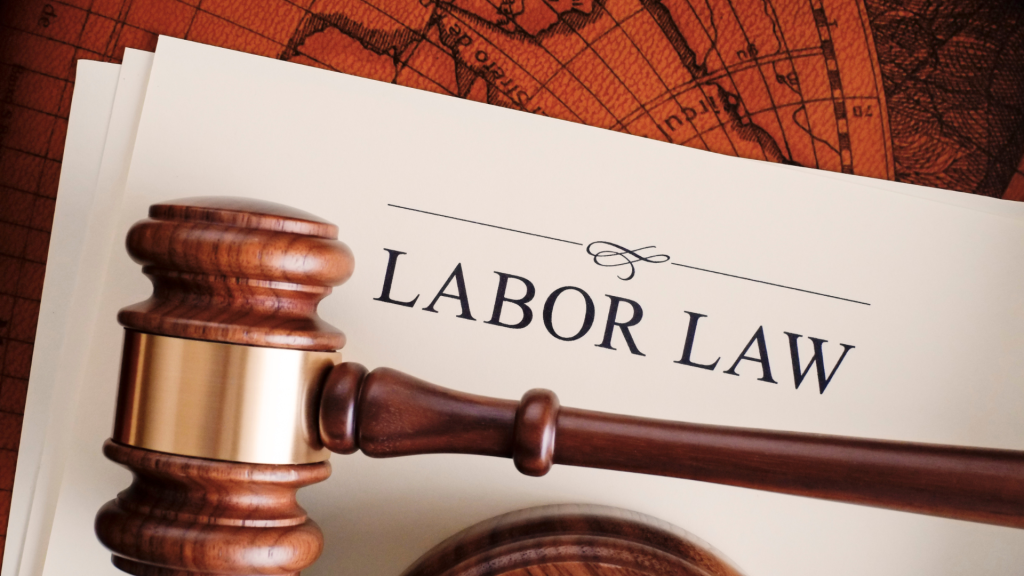Have you ever wondered how you can find a job and get hired for one? How do you know what an employment contract is, what all those terms mean, and how does this affect your salary? In this article, we are going to go over the basics of Employment Law and Labor Law.
What is Labor Law?
Labor law is the body of law that governs the relationship between employers and employees. Employment contracts and labor laws are essential to ensuring a fair working environment for both parties. Under federal, state, and local law, different types of workers may be protected by specific provisions of labor laws, including minimum wage laws, overtime pay laws, child labor laws, workers’ compensation laws, anti-discrimination laws, and anti-harassment laws. In addition to these provisions, another significant aspect of labor law is the concept of the prevailing wage. This law requires employers to pay their employees a wage that is at least equal to the wage paid to workers in similar occupations within the same geographical area. This ensures that workers are fairly compensated for their skills and prevents unfair wage practices that could lead to exploitation and wage disparities.
In addition, many states have their own version of workers’ compensation statutes that may be more comprehensive than those found in federal or state law. Pertaining to these laws, employers are obligated to offer fair employment opportunities to the employees as well as provide them with a safe work environment. If the employees are required to work in a potentially dangerous environment such as a manufacturing unit, employers are also required to confer them with appropriate protective clothing and equipment such as hard hats, steel toe boots, protective eyewear, and safety gloves (like those found on unigloves.co.uk) to name a few.
The National Labor Relations Board (NLRB) is responsible for enforcing certain aspects of labor law in private industry when there is a dispute between an employer and its employees. The NLRB also resolves disputes between unions and employers through collective bargaining processes.
Pros and Cons of Employment Contracts
When you are considering whether to enter into an employment contract, there are a few things to consider.
Pros of Employment Contracts
Employment contracts can provide peace of mind in knowing your rights and obligations. They can be complex and may have terms that you may not be familiar with or agree with. However, if you understand the contract and its terms, it can provide clarity in your relationship with your employer. In the realm of remote work, businesses often manage contractors initially for specific projects, but as collaboration deepens, the possibility of converting contractors to employees arises. Understanding how to manage contractors during these transitions and adeptly handling the conversion process is crucial for fostering a stable and committed remote workforce.
Cons of Employment Contracts
Employment contracts can be expensive to create and enforce. They may also require specialized legal advice. If you breach a contract, you could face penalties including financial compensation, termination from your job, or even criminal prosecution.
More Tips To Get A Job
Getting a job is tough, but it’s not impossible. Here are some tips to help you get started:
- Research the job market. Use online resources, such as Indeed.com, to learn about current job openings and trends.
- Network. Go out and meet people in your target industry. Attend networking events, such as career fairs and meetups, or volunteer with local organizations that focus on career development.
- Be prepared to interview. Don’t be afraid to ask questions during an interview, and be prepared to give a brief summary of your skills and experience.
- Dress for the job you want. You may think that wearing a suit is necessary for every job opening, but it’s not always the case. In fact, many employers are looking for candidates who are comfortable representing themselves in an interview setting.
- Keep a positive attitude. No matter how bad the economy is, don’t let bad news demoralize you – instead, keep your chin up and stay optimistic about your chances of landing a good job.
Labor Laws and Employers
When looking for a job, you should be aware of labor laws and employment contracts. Labor laws protect workers from unfair and abusive treatment by their employers. Employment contracts outline the terms and conditions of your employment, such as pay, hours, and vacation days. Labor laws also give way for workers to get compensation in cases where the employer’s negligence is responsible for the accident or injury caused to them. With the help of lawyers at Larrimer & Larrimer or a similar firm, victims of workplace accidents can avail themselves the rights granted within these laws to hold the employer accountable and get fair compensation.
Labor laws can vary from state to state, so it is important to familiarize yourself with the specific laws in your area. Some common labor laws include:
- The right to unionize
- The right to overtime pay
- The right to a minimum wage
- The right to job safety protections
- The right to whistleblower protections
If you are an employee who believes that your employer has violated your rights under labor law, you may be able to file a complaint with the appropriate government body. You may also be able to file a lawsuit if you believe that your rights have been violated.
If you’re looking to get a job, or just want to be sure that you’re working under the correct legal conditions, it’s important to understand labor law and employment contracts. In this article, we outlined the main points you need to know about both of these subjects in order to avoid any potential trouble down the road. Armed with this knowledge, you can start your job search confidently and ensure that all of your bases are covered.

